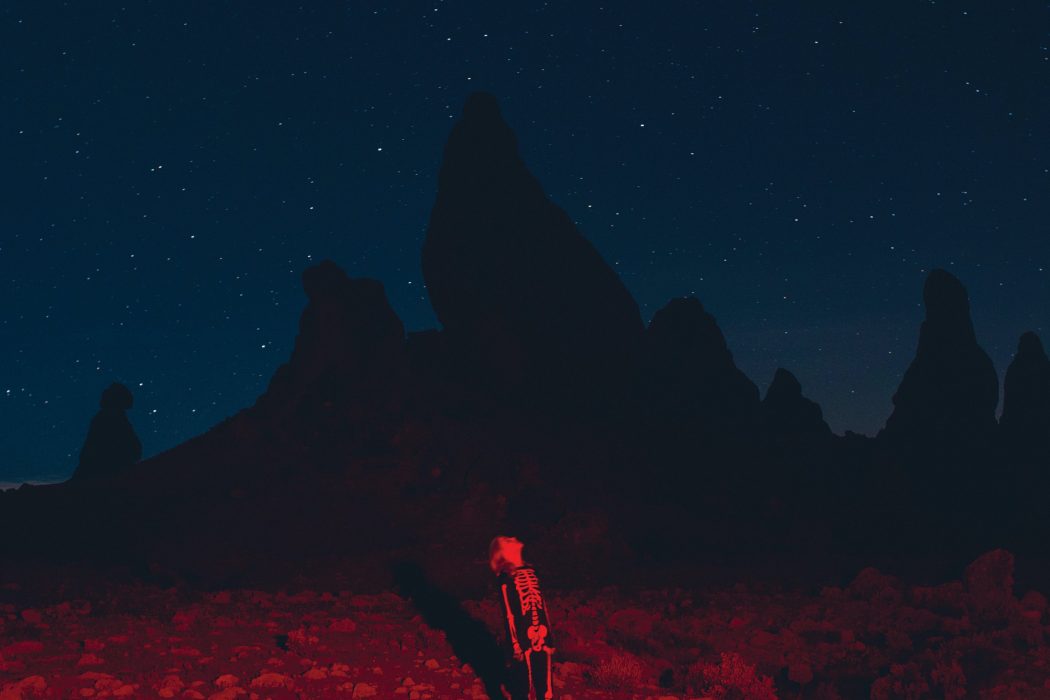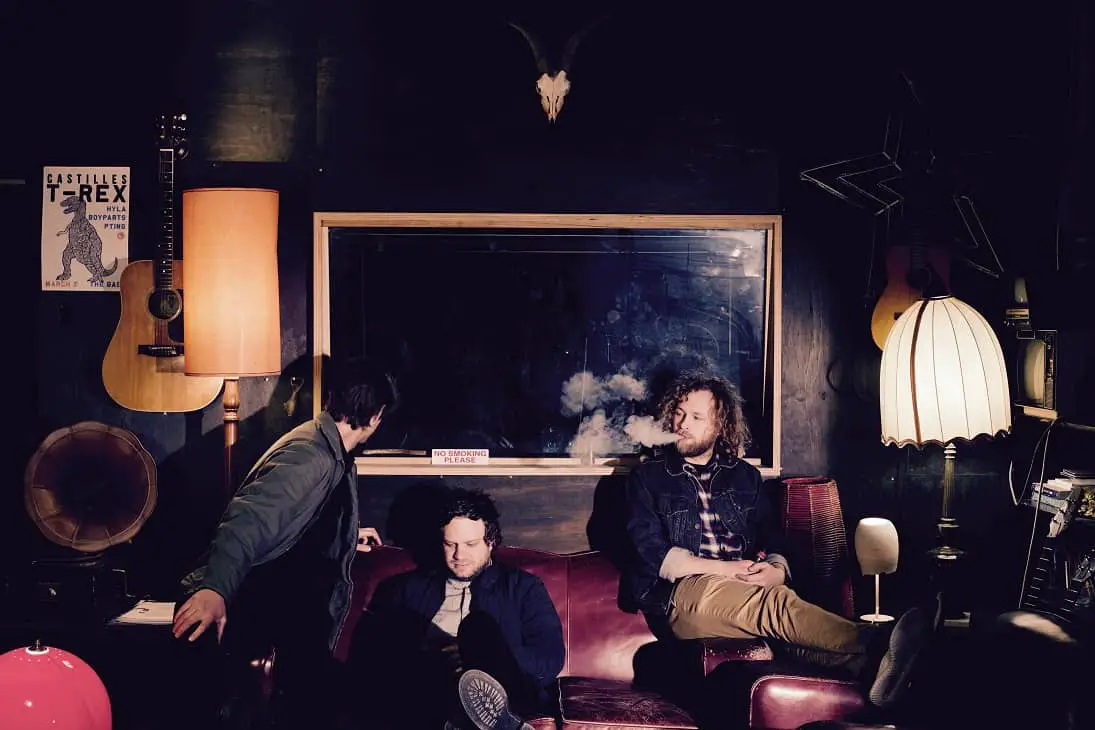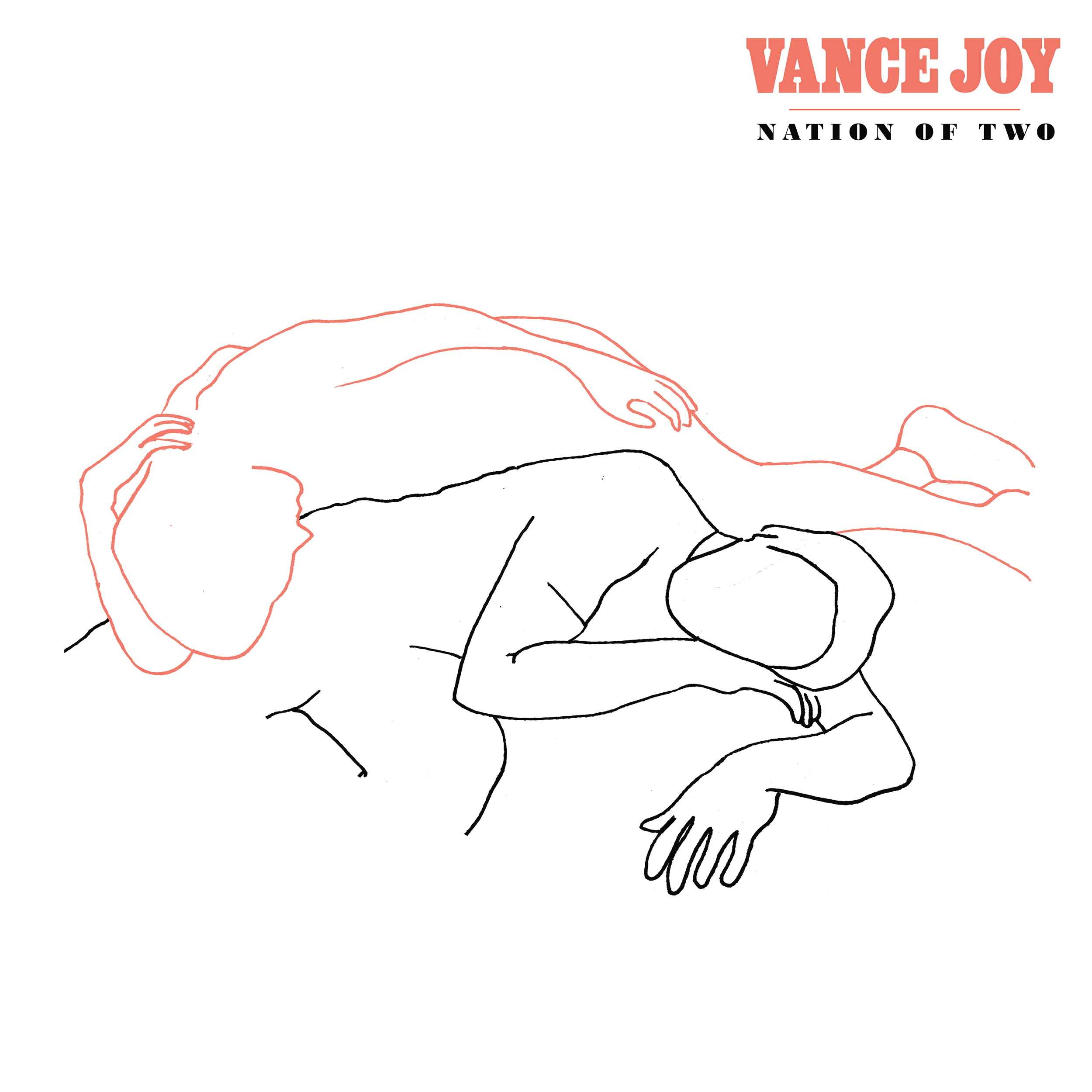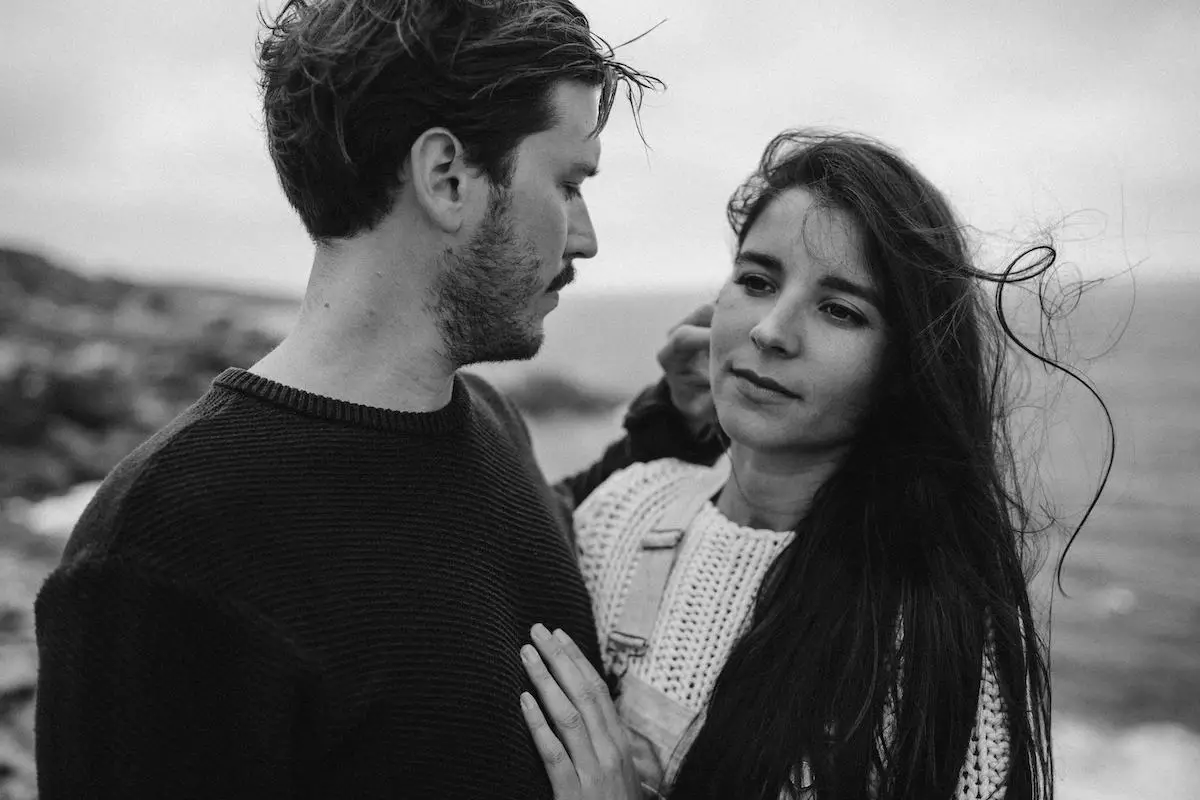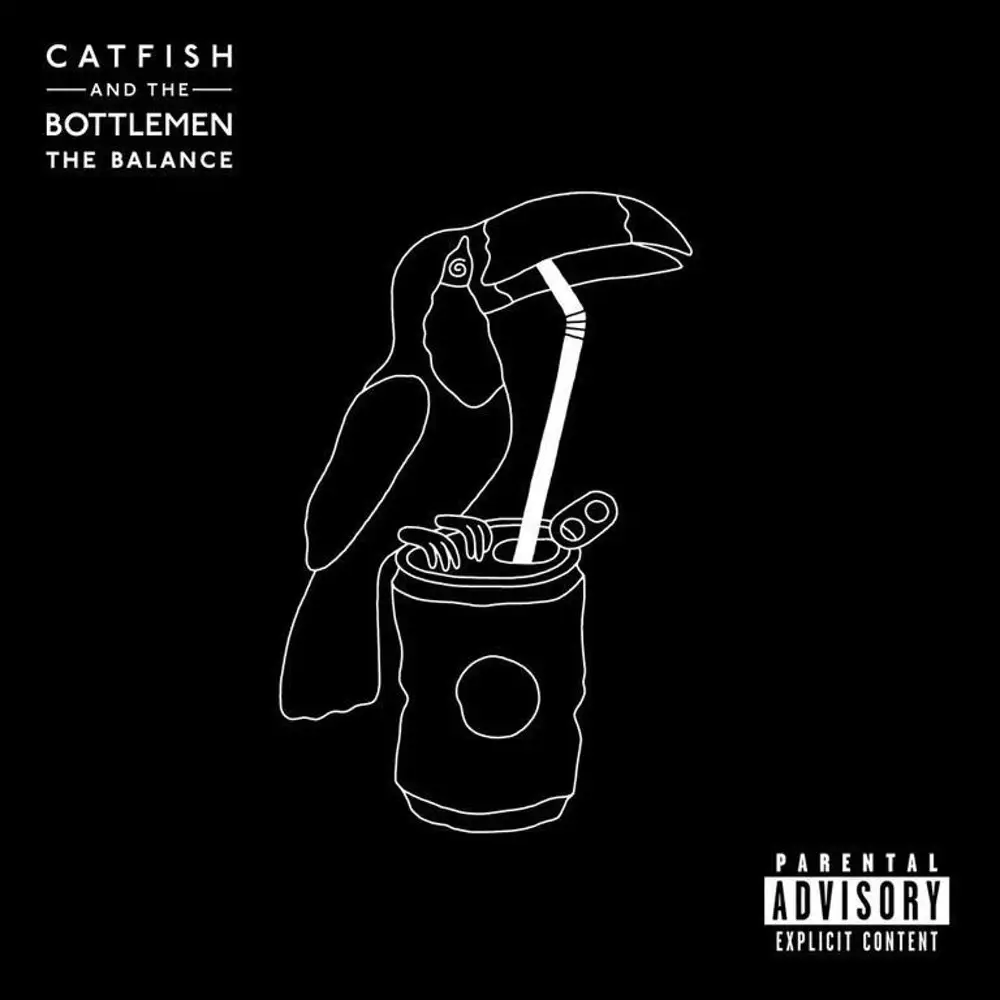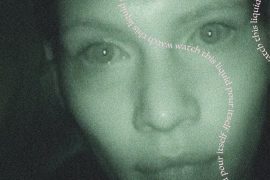Death is permanent and real, and Phoebe Bridgers is here to remind you of that with ‘Punisher’.
Stream: Punisher-Phoebe Bridgers
It’s difficult to sum up the absolutely decimating power that Punisher brings. After exploring various parts of her musical palette with both Boygenius and Better Oblivion Community Center, Phoebe Bridgers has reinvented herself from the whispery singer-songwriter of her first album into a force of a solo performer that doesn’t lose touch with what made Stranger in the Alps such a dynamic record.
While Punisher touches on a variety of subjects, some sort of existential assignment of meaning to this temporary state of existence seems to prevail. Even in a track like “Garden Song,” Bridgers contemplates “look[ing] up from my phone and see[ing] my life,” and planting a garden to cover up the death of a skinhead neighbor. Death is a constant looming reminder throughout Punisher.
Watch: “Garden Song” – Phoebe Bridgers
Void is a difficult thing to contemplate. Its actually nearly impossible to even imagine. “Everyone and everything you’ve ever loved, everything you’ve ever touched and smelled is gone. Once your heart stops beating and the electrical impulses in your brain stops, that’s it. It’s not even blackness, because you would have to have a conscious working brain in order to process blackness. It’s just an empty void of nothingness. You wouldn’t even realize that you are dead,” YouTuber Top5s summarized in a video about after-death theories. Bridgers likely subscribes to this vast nothingness after death, and Punisher shows a songwriter trying to come to terms with the types of heavy woes that you experience in your 20’s as you see friends, loved ones, and others die and realize that it inevitably (but hopefully distantly) will come for you. In the album’s standout song, “Chinese Satellite,” Bridgers sings:
When you said I will never be your vegetable
Because I think when you’re gone, it’s forever
But you know I’d stand on the corner
Embarrassed with a picket sign
If it meant I would see you when I die
Bridgers’ fixation on death is not merely her own and wanting to see the loved ones at the end of the line. Other standouts like “Halloween” and “Moon Song” meditate on others like hearing ambulances whiz by in the middle of the night, waking you up and the tragic death of Eric Clapton’s four year old song, but these mentions are just a show of the eternal rest’s presence in everyday life. “Moon Song” is a show of concern for a friend and lover, where “Halloween” uses the holiday as a metaphor for us to show different parts of ourselves, which can occasionally be more honest: “I can count on you to tell me the truth/When you’ve been drinking and you’re wearing a mask[i].”
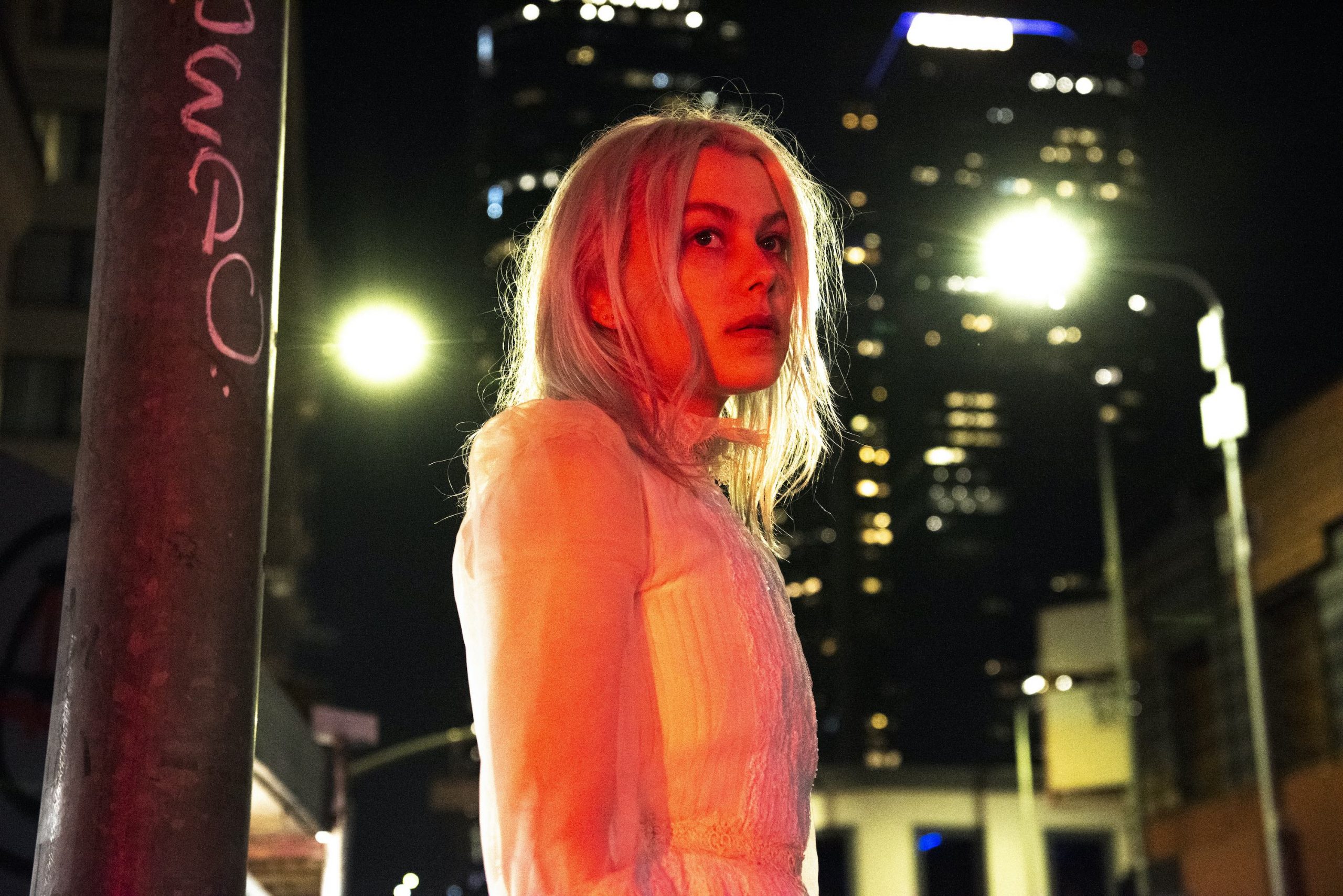
While writing this review, I tried to meditate more on this album, and think about whether I was just seeing the death metaphors, because the phrase “memento-mori[ii]” is consistently intruding my thoughts, partially due to the nature of the current state of the world, partially because it feels regularly occurring, but the moments keep recurring. Despite songs like “Kyoto” and “Graceland Too” straying, even songs that may not seem like definite death songs have them recur. Even in songs like “Punisher,” which doesn’t seem like a death meditation, it cozies itself into the album’s major theme when the listener is more aware that it’s an ode to Bridgers’ dead idol—Elliot Smith, where the lone thing separating them is the veil between life and death. For every moment that you think you’re distracted from death, it’s still there, lingering and waiting.
This all comes to a head in the album’s closing song “I Know The End,” which trudges in an anthemic, expansive space that shows more ambition than any song Bridgers has written before. The song is about a breakup and about homesickness and government conspiracy theories and American atrocities and the apocalypse. Bridgers sets the scenes like watching from a field in Stranger Things and as the track swells like a drive to a final battle with a Demogorgon, a sign reminding that “The End is Near” serves as a summation to wonder why does any of this matter. As a chorus sing/shout, “The end is here,” it sounds like earth-bound molecules are disintegrating and being torn bit by bit. Bridgers called it her metal song to Apple Music, and it has the same gravitas that bands like Iron Maiden or Deafheaven bring, but with a more plainspoken, spooky realness to it. While so many songs look at the people preaching about the end of the world but find some blissful beauty in it, it almost feels like Bridgers looked, around saw it, and said “well, fuck, they’re right.” The end doesn’t necessarily come with fire and brimstone, sometimes it’s an “America First rap country song” or a SpaceX launch. The final shrieks on the record are giving in and joining the ghosts around you.
[i] A line with new found double meanings due to the current pandemic.
[ii] The Latin phrase for “remember you will die.”
— —
:: stream/purchase Punisher here ::
— — — —

Connect to Phoebe Bridgers on
Facebook, Twitter, Instagram
Discover new music on Atwood Magazine
? © 2020
Punisher
an album by Phoebe Bridgers

